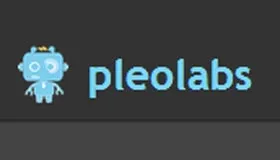How two buddies reconnected to help schools to digitize entire learning cycle: Pleolabs’s story

As a platform, Gopleo comes inbuilt with some of the simplest, most optimum approaches to learning workflows across all aspects that are relevant to a student’s learning progress within and educational institution. Gopleo also comes with an API that allows it to be extended in innumerable ways via content packs or applications- all built by an enthusiastic community of educators and developers. Gopleo becomes the bridge that connects all the learning pieces in a learning environment, creating a complete, coherent picture of each individual’s learning progress.
Idea behind Pleolabs
Pleolabs was born over drinks at dinner, when the co-founders - Kshitij, an IIT Delhi alumni, and then a consultant with Booz & Company re-met his batchmate from school, Yash, who at the time was running another tech startup - a SaaS product for the legal industry, primarily law firms. “What began as a conversation reminiscing about their times together while at school, turned into an idea that could potentially change the way schools & colleges apply technology to streamline and improve their learning cycle,” says Kshitij.
Building team is a big challenge
“Building a team has been very challenging but at the same time, immensely rewarding. Having a group of people that are passionate about education and have a definitive point of view about the principles driving it forward makes our job so much easier,” adds Kshitij.
Pleolabs’s USPs
Presently, most available solutions in the market are fragmented in their approach to learning. They address different dimensions of the learning cycle- planning, engagement, assessment, analysis and improvement- in silos that do not talk to each other. “The problem is that each such product aims at addressing one or more of such approaches. There is an opportunity to allow all these different approaches to co-exist, and that is how GoPleo is differentiated from all other solution,” says Kshitij.
So far scale
Among the few schools with whom the company has been able to move beyond alpha testing in delhi are D.P.S, R.K Puram. “Currently we are focussing on meeting all our customers requirements and not spread ourselves too thin. The user engagement metrics we’ve been able to create so far has been very promising,” says Kshitij. As far as features are concerned, every school is different in what they adapt first. Some go for curriculum and lesson planning whereas others go for online quizzing.
“We aim at building a robust platform, that takes user experience learning from the most popular online platforms in existence today, and then add some of our own learnings to it,” adds Kshitij.
Pricing and revenue model
Pleolabs has monthly subscription plan for each student. The current actual rate depends on the size of deployment, but moving forward the company will have a standardized pricing. “There are multiple opportunities for monetization with Gopleo. In the immediate term, we are providing Gopleo as a scalable SaaS offering available on a pay per user model, with very aggressive pricing,” adds Kshitij. Pleolabs plans to begin exploring opportunities around revenue sharing from its soon to be launched Apps and Content Marketplace. In the long run, the company will be adding consulting & information services to its repertoire- services driven by research on tremendous amount of learning data that the platform is geared to generate.
Challenges, future plans & motivation behind Pleolabs
One of the key challenges faced by Pleolabs is penetration in the existing education market - a market which is fragmented by a number of different solutions and no available fixed standards for data specification with respect to web based e-learning (Unlike SCORM). In future the company plans to target all industries associated with learning; i.e school, colleges & enterprise.
“One of the most important reasons for us to foray into entrepreneurial world in the first place was to bring to life the ideas that are otherwise lost because it’s one of those things you think about over coffee or while you were driving or while you were working in your job,” concludes Kshitij.







